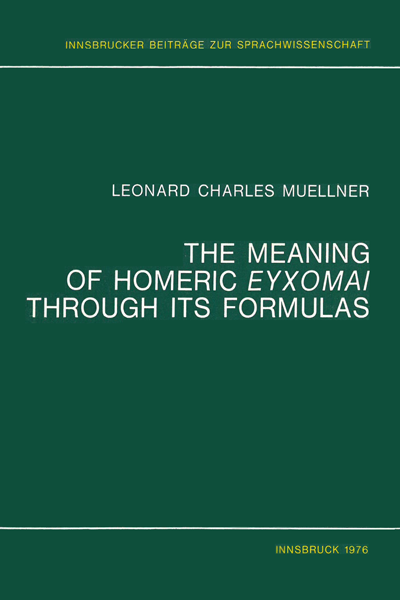The meaning of Homeric εὔχομαι through its formulas
Eukhomai had been glossed traditionally as “pray, long for, wish for; vow, promise; boast, brag, vaunt; profess, declare.” Muellner’s approach is to make a systematic analysis of the constraints in which this word is used in Homeric texts—grammatical, stylistic, and contextual—and to compare them, keeping in mind the framework of traditional diction, in which “a traditional poet uses a repertoire of…
Eukhomai had been glossed traditionally as “pray, long for, wish for; vow, promise; boast, brag, vaunt; profess, declare.” Muellner’s approach is to make a systematic analysis of the constraints in which this word is used in Homeric texts—grammatical, stylistic, and contextual—and to compare them, keeping in mind the framework of traditional diction, in which “a traditional poet uses a repertoire of formulas and themes to express his meaning.”
Second online edition a book originally published in 1976 as Innsbrucker Beiträge zur Sprachwissenschaft Band 13.
Use the following persistent identifier: http://nrs.harvard.edu/urn-3:hul.ebook:CHS_MuellnerL.The_Meaning_of_Homeric_eukhomai.1976.
Copyright, Leonard Muellner. Published here by permission of the author.

